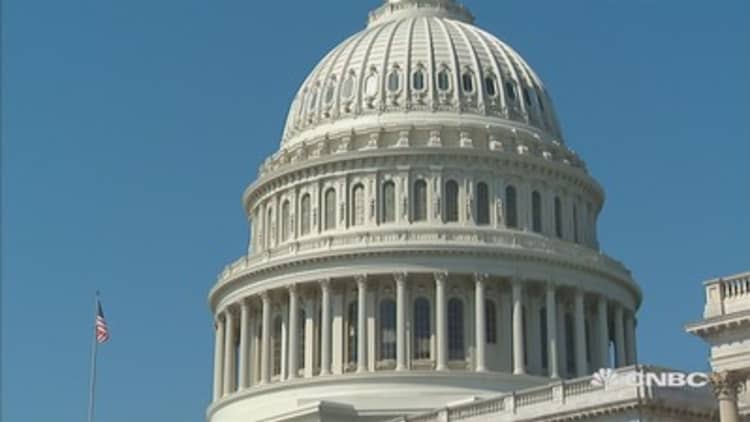
Regulations are top of mind for many small business owners, with momentum for paid sick-leave mandates and higher wages building, as well as the new compliance rules under the Affordable Care Act.
President Barack Obama reminded the country in his final State of the Union address that the fight for better worker protections is far from over.
"I will keep pushing for progress on the work that still needs doing," he said Tuesday night. "Equal pay for equal work, paid leave and raising the minimum wage. All of these things still matter to working families, they are the right thing to do, and I won't stop until they get done."
However, new research shows that if one congressional bill extending paid sick time to workers were to be implemented in 2016, small businesses could be hit hard over the next decade.
The conservative lobbying group National Federation of Independent Business analyzed the Healthy Families Act, which allows workers in businesses that have 15 or more workers earn up to seven job-protected paid sick days per year to recover from illnesses, seek medical care and provide care to a sick family member, among other things.
Read More Obama in State of the Union: We need to 'fix our politics'
The paid sick-leave mandate could result in the loss of 430,000 jobs through 2025, and small firms would account for 58 percent of all jobs lost, the federation's report said. In addition, the real output lost during that decade would be $652 billion, the report states, half of which would be borne by small businesses.
"Absent workers do not produce goods or services that would otherwise be produced if they are in the workplace," federation senior data analyst Michael Chow said, adding there is a compensation cost that businesses also have to deal with in paying those workers for time off. "Businesses might eat the cost through lower profits, those profits going into the pockets of business owners, who are in turn consumers in the economy and will thus have less money to spend on goods and services elsewhere, driving overall demand in the economy down."
Under the Healthy Families Act, employees who work at least 20 hours a week earn a minimum of one hour of sick leave for every 30 hours worked, up to 56 hours, unless the employer sets a higher threshold. Businesses with fewer than 15 workers would have their workers earn up to seven unpaid sick days to be used for the same reasons, according to advocacy group National Partnership for Women & Families.
For small business owners like Larry Stottlemyer, who owns Adventure Park USA in Frederick, Maryland, mandated sick pay is a major concern. He owns a seasonal indoor-outdoor amusement park and employs up to 130 in the summer and 45 in the winter. Only six have paid time off, and wider offerings would be a burden.
"Paid leave should be something somebody should earn — not just have a right to," Stottlemyer said. "I think mandating this kind of stuff to small businesses is not what the government should be doing. We need good employees and to take the ability away to negotiate with a good employee — that is damaging to us."
A broader push for paid leave

Aside from the Healthy Families Act, there is a broader Democratic congressional push for paid family leave. The Family and Medical Insurance Leave Act (The FAMILY Act), provides workers with up to 12 weeks of partial income when they take time for their own serious health conditions. This includes pregnancy, childbirth recovery, serious health conditions of parents, spouses, children or domestic partners, as well as births or adoptions and military caregiving and leave. It covers workers in all companies, no matter the size, including younger, part-time workers, lower-wage workers and contingent employees, according to the National Partnership for Women & Families.
Both would likely be a tough sell in a Republican-controlled Congress. However supporters like Ellen Bravo, executive director of Family Values @ Work, a Milwaukee-based advocacy group, say momentum is building. Given Democratic presidential hopefuls' attention to the matter, that trend is likely to continue to build in the coming months. Hillary Clinton and Bernie Sanders have been squaring off on their different plans for paid time off in recent days, although they differ on how their mandates would be paid for.
"We say we live in a nation that says it has family values, but it's untenable that we have people that need to choose between diapers and gas or a phone and their bus pass because they get a call from their kid's school that they are sick," Bravo said.


